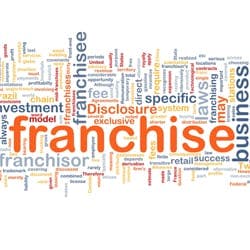With over 1,000 franchise systems in Australia, it can be tricky to figure out which will be a winner. Kristy Sheppard has some advice for choosing the franchise that’s right for you.
With around 1,000 franchise systems in Australia – per-capita, we’re one of the most heavily franchised countries in the world – anyone considering taking the leap into this sector quickly learns it’s awash with possibilities.
You are deciding whether to buy either an established or a ‘greenfield’ business within a franchise system that you’ll most likely be a part of for a good decade or more. This isn’t your average job and although as the franchise owner you’ll have a lot of control over how the business is run you do have to abide by the terms of a franchise agreement. Choose well.
A franchise system can give you proven systems and processes, and a solid support platform from its head office, business consultants and, if you’re lucky, other franchisees. Some don’t. So how do you sort the wheat from the chaff? Here are some tips:
- Check you have the personal attributes required. Do you have the interest, passion, drive, determination, motivation and resilience to succeed? Are your customer service and business partnership building skills of high quality? Are you keen to continue learning and growing as a business owner and an expert in the industry you are considering joining?
- Get stuck into researching the industry and your potential franchisors. Some franchising experts say you should do one hour of research for every $1,000 you’ll spend on buying a franchise. If you’re aiming for a high profile system that can mean 400-500 hours. Scour the internet for articles about your potential industry and franchisors, read relevant franchising and small business magazines and newspaper sections, talk to other industry participants, visit franchising expos, speak to a professional advisor such as a business broker, discuss the financial and legal implications with your accountant and financial planner, etc. Don’t forget that last point – that is absolutely crucial!
- Meet with your top pick franchisors and their franchisees. A good franchisor will most likely put you through rigorous testing to make sure you fit their mould – make sure you do the same to them. Don’t be afraid to interview each franchisor candidate’s key managers, execs and CEO. If they want to take your money they’re going to have to prove they are worthy. In the same vein, talk with franchisees from each franchise system to get an insider’s opinion.
- Do the figures to see if you have what it takes financially. It can easily take 6-12 months before you turn the corner into positive cashflow territory. Can you stick it out emotionally and dollars-wise for all that time? Many franchisors suggest you need six to 12 months’ worth of working capital behind you before buying a new or existing franchise, in addition to the cost of your chosen franchise. Ensure that you definitely, without question, have enough financial fuel in your tank – whether borrowed or saved – to embark on and establish this business venture.
- Make the decision, sign the agreement, cross your fingers, put your head down and your bottom up, then achieve your goals. Simple, right?
- Get your questions straight. To ensure you make a sound comparison between potentials, build a list of all the questions you need to ask about each then be sure you glean all the information you need. These will probably include: How credible is the industry, what’s its growth potential, are the products/services something I believe in, what’s the franchisor’s reputation, is it an industry association member, what training is provided, what marketing support will there be, what field support is there, what CRM and accounting software do they use, how keen will staff be to join my business, what skills will they need, how many work hours are required, who are the competitors, how strong are they, how much money do I need to put in and for how long, what’s the projected ROI at each milestone, will there be passive income in future and what’s my succession plan.

